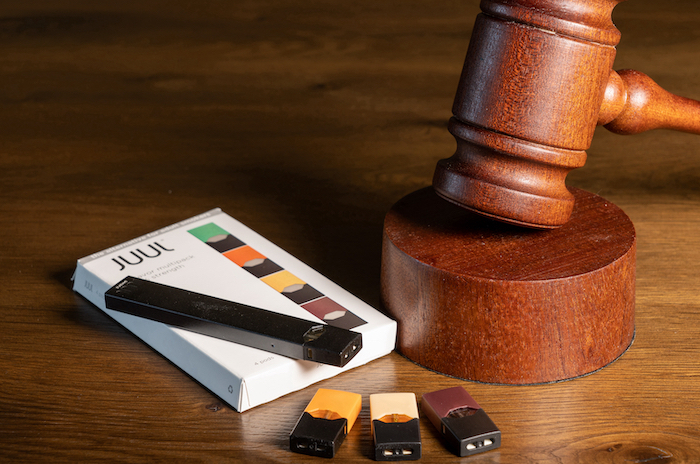Plus: More evidence that vaping isn’t a safe substitute for tobacco, and the influence of a child’s socioeconomic background on problematic use of social media
By William Wagner
So much for the benign notion of casual drinking. The first sip of alcohol you ever take can alter your brain permanently, says a team of scientists.
This week, we also examine the lung damage caused by vaping and the role socioeconomic status plays in social media addiction.
From Proceedings of the National Academy of Sciences:
Booze and the Brain
A study conducted by researchers from the University of Cologne and the Universities of Mannheim and Heidelberg indicates that “single ethanol exposure”—meaning the use of alcohol just one time—can adversely affect the brain patterns and ultimately lead to alcohol use disorder (AUD).
“We set out to discover ethanol-dependent molecular changes,” says Henrike Scholz, PhD, of the University of Cologne. “These, in turn, provide the basis for permanent cellular changes following a single acute ethanol intoxication. The effects of a single alcohol administration were examined at the molecular, cellular and behavioral levels.”
“[I]dentifying lasting ethanol-dependent changes is an important first step in understanding how acute drinking can turn into chronic alcohol abuse.”
—Henrike Scholz, University of Cologne
Performing tests on mice and fruit flies, Scholz and her fellow researchers discovered that the brain’s reward system is affected by first exposure to alcohol. Specifically, that first exposure sparks disturbances in the balance between synapses in neurons (information messengers in the brain) and begins the formation of the brain’s positive association with alcohol.
The researchers believe their work provides a link in our understanding of the chain resulting in chronic alcohol use. Says Scholz, “These mechanisms may even be relevant to the observation in humans that the first alcohol intoxication at an early age is a critical risk factor for later alcohol intoxication and the development of alcohol addiction. This means that identifying lasting ethanol-dependent changes is an important first step in understanding how acute drinking can turn into chronic alcohol abuse.”
From the New England Journal of Medicine Evidence:
Lung Damage for e-Cigarette Users

Anyone who thinks e-cigarettes are a safe alternative to tobacco should read this study out of Massachusetts General Hospital. In a nutshell, it states that vaping damages the small airways in the lungs. The study was small—examining a cohort of four patients who had been vaping for three to eight years—but comprehensive. The patients underwent exhaustive evaluations, including pulmonary function tests, chest imaging and surgical lung biopsies. Every patient was diagnosed with a narrowing of the small airways, while three had mild emphysema.
The researchers attribute all the maladies to vaping. “Our investigation shows that chronic pathological abnormalities can occur in vaping exposure,” says senior author David Christiani, MD, a physician investigator at Mass General Research Institute. “Physicians need to be informed by scientific evidence when advising patients about the potential harm of long-term vaping, and this work adds to a growing body of toxicological evidence that nicotine vaping exposures can harm the lung.”
On the bright side, the damage doesn’t seem to be irreversible. Three of the patients showed better pulmonary function tests and chest imaging after quitting vaping.
From Information, Communication & Society:
The Socioeconomic Aspect of Social Media Addiction
In a newly published study in Information, Communication & Society, children from disadvantaged backgrounds were found to be more likely to become addicted to social media platforms such as Facebook, Instagram and WhatsApp. Led by researchers from the University of Padova in Italy, the study is believed to be the first to examine the connection between socioeconomic status and social media use.
“The problematic use of social media may represent a means to attenuate the negative consequences of being relatively deprived.”
—study in Information, Communication & Society
Nearly 180,00 children aged 11, 13 and 15 from 43 countries were surveyed for the study. The participants filled out questionnaires designed to pinpoint addictive social media behaviors, such as how bad they felt when they weren’t online and their success rates in keeping their social media use in check. The researchers also created an index to measure the material assets of each person’s family. Results of the surveys showed a correlation between socioeconomic inequality and problematic use of social media.
The question is, why? The study’s authors don’t have definitive answers at this point, but they do have theories, notably this one: “The problematic use of social media may represent a means to attenuate the negative consequences of being relatively deprived by venting negative emotions or escaping from negative feelings through online activities,” they write.
Top photo: Chris Montgomery














